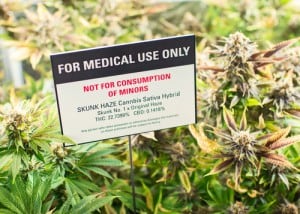Senate Panel in South Carolina Advances Updated Medical Marijuana Bill
 In June last year, South Carolina Governor Nikki Haley signed a very limited medical marijuana bill into law. Although the bill did not offer provisions for growing or processing marijuana as a medical treatment in South Carolina, it was the first small step toward legalizing the drug as a prescription substance, a path many other U.S. states have taken.
In June last year, South Carolina Governor Nikki Haley signed a very limited medical marijuana bill into law. Although the bill did not offer provisions for growing or processing marijuana as a medical treatment in South Carolina, it was the first small step toward legalizing the drug as a prescription substance, a path many other U.S. states have taken.
An updated version of the bipartisan bill went to a Senate subcommittee, and on Thursday, September 24th the Senate Medical Affairs subcommittee voted unanimously to advance the bill.
Senator Tom Davis, R-Beaufort, is the bill’s sponsor and has proposed several broader versions of medical marijuana legislation over the years.
Currently, South Carolina’s medical marijuana laws allows for very specific debilitating, chronic conditions like childhood epilepsy to be treated with the drug. Only cannabidiol oil, derived from one of the two compounds found in marijuana, can be prescribed, and there were no provisions in the original legislation to allow for the oil to be produced or imported into the state, nor prescribed. Although patients suffering from these disorders were allowed to have the drug as a treatment, there was still no access to medical marijuana in South Carolina – families had to leave the state for the treatments.
The most recent proposed medical marijuana bill would treat a wider variety of issues including cancer, glaucoma, AIDS, and post-traumatic stress disorder. These diseases can cause chronic pain, loss of appetite and weight loss, and high levels of stress, which different varieties of medical marijuana can treat.
The new bill also makes provisions for growing and tracking medical marijuana in the state. The current version of the bill offers a “seed-to-sale” tracking system, which licenses growers in South Carolina and tracks their stock, which dispensaries end up with the product, who the medical marijuana is prescribed to, and how often. The system is based on opioid painkiller tracking systems, which are rigorous to stem the growing problem of prescription painkiller addiction in the United States.
While many law enforcement officers and regulators have expressed concern for the updates to South Carolina’s medical marijuana law regarding potential addiction and abuse, Sen. Davis replied: “Any system we come up with is going to be abused.”
SC Law Enforcement Division (SLED) Chief Mark Keel told senators that he opposes the legislation because the system does not take into account what happens to the drug once the patient fills their prescription. He added that, in states which have legalized medical marijuana use, more adolescents have started using the drug, which could mean they are addicted to the drug earlier and for a longer period of their lives.
Marijuana, whether for medical or recreational use, is still illegal according to federal law, 23 states and the District of Columbia have legalized some form of medical marijuana use. Like South Carolina, many of these states are concerned about drug addiction, and have legalized CBD-specific medical marijuana. CBD is the compound in the marijuana plant that is believed to ease pain, relax the body, and help appetite; THC, the other, more famous compound in marijuana, is the compound which creates the “high” many people associate with recreational use.

